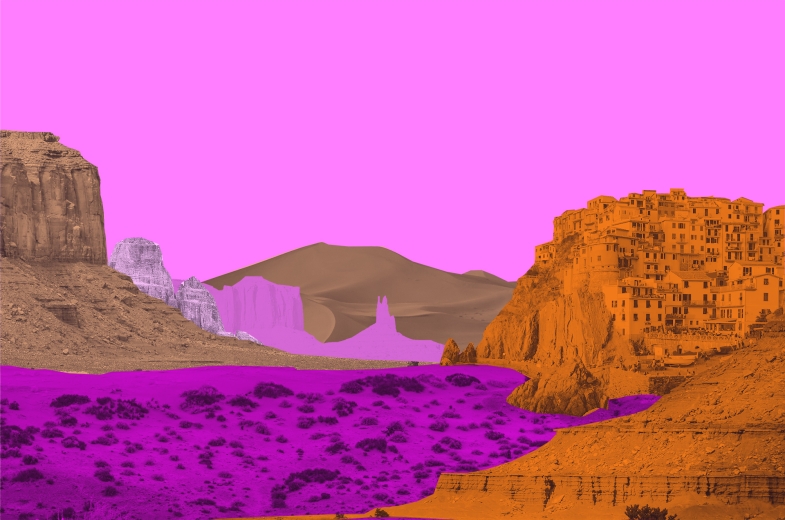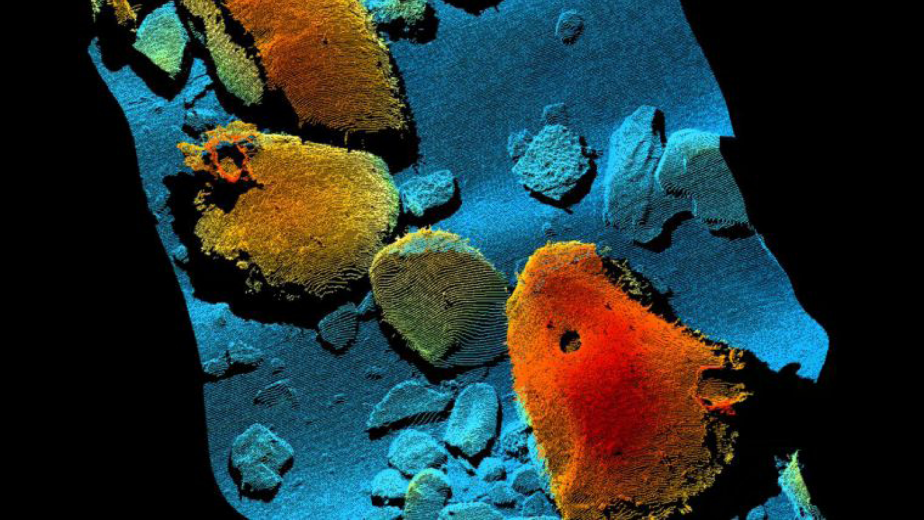
Liquid Infrastructure
Roundtable co-organised with the Centre for Research Architecture at Goldsmiths, University of London
Hosted by the Centre for Research Architecture (CRA) Director Susan Schuppli and Lorenzo Pezzani, this roundtable will focus on discussions around oceanic infrastructure, reflecting on the politics of sensing and extraction, as well as sound as an interscalar medium that has the potential to challenge our understandings of ecological tensions. Liquid Infrastructure guests include anthropologist Stefan Helmreich, artist Raviv Ganchrow, and CRA PhD student Mustapha Jundi. This programme is co-curated by the CRA (Goldsmiths, University of London) with PhD student and curator Margarida Mendes and open to the general public.
Programme
03/06/2021
17.00
Introduction to the roundtable by Susan Schuppli and Margarida Mendes
17.00–20.00
Ocean Waves, Ocean Science, Ocean Media
Lecture by Stefan Helmreich
How do oceanographers apprehend ocean waves? This presentation draws on anthropological work I undertook among wave scientists in the United States to argue that what oceanographers take ocean waves to be has been strongly imprinted by the techniques, technologies, and media – maritime, photographic, filmic, theoretic – through which waves have come to be known. I offer an account of ethnographic fieldwork I conducted on board the Floating Instrument Platform (FLIP), a seagoing vessel managed by the Scripps Institution of Oceanography, in La Jolla, California. FLIP is a singular vessel, one that, once at sea, can “flip” 90 degrees into a vertical position – with all the instrumentation inside swivelling correspondingly – to become a stable platform from which to measure wave action. Moving from an examination of the contemporary use of infrared and laser imaging to study waves from FLIP, I place the platform within a longer history of wave science, reaching back into the Cold War, when ocean observation projects were conditioned by nuclear-age American maritime expansion, particularly in the Pacific. I then flip to the recent present, as scientists turn from understanding waves not only as a kind of infrastructure for maritime networks, but also as avatars of anthropogenic climate change.
Stefan Helmreich is professor of anthropology at the Massachusetts Institute of Technology. He is author of Alien Ocean: Anthropological Voyages in Microbial Seas (2009) and Sounding the Limits of Life: Essays in the Anthropology of Biology and Beyond (2016). His essays have appeared in Critical Inquiry, Representations, American Anthropologist, The Wire, Cabinet, and Public Culture.
04/06/2021
10.00–13.00
CRA PhD student presentation by Mustapha Jundi [private session]
14.00–17.00
Whale Refractions
Lecture by Raviv Ganchrow
How do spectrums entangle oceans and wave-delays radiate space? Mammalian abilities of hearing and sounding underwater emerge from entanglements of plate tectonics, amino acids, Eocene global warming, acoustic fats, green (and red) algae, piezoelectric crystals, seafaring navigation, oil and gas exploration, maritime trade, marine biology, military surveillance and ocean activism. Recent spatial-material impressions of marine structures and inhabitants rely on a particular constellation of the latter three categories, intersecting in cold-war monitoring techniques. This talk follows waymarks in spectrally calibrated human attention to oceans refracting through shifting agencies of whales.
Raviv Ganchrow researches interdependencies of sound, locale and hearing through installations, writing, and the development of transduction technologies. His installations examine context-dependent aspects of sonic attention such as environmental infrasound (Long-Wave Synthesis, Dark Ecology, Kirkeness and Sonic Acts, Amsterdam), anechoic chambers (Padded Sounds, Max Planck Institute for the History of Science, Berlin) and the materiality of radio transmission (Radio Plays Itself, ORF Kunstradio; Forecast for Shipping, BBC Radio 4; Knallfunken, Deutschlandfunk Kultur). Recent installations develop in-situ circuits conductive of human-geo-electric binds (Agora Circuit, Tuned City / Onassis Cultural Foundation, Ancient Messene and Westhafen Ground-Electric, Singuhr at ZK/U Berlin). He publishes, teaches and lectures broadly on the subjects of auditory context and sonic agency and is currently a faculty member at the Institute of Sonology, University of the Arts, The Hague.
In English language only.
